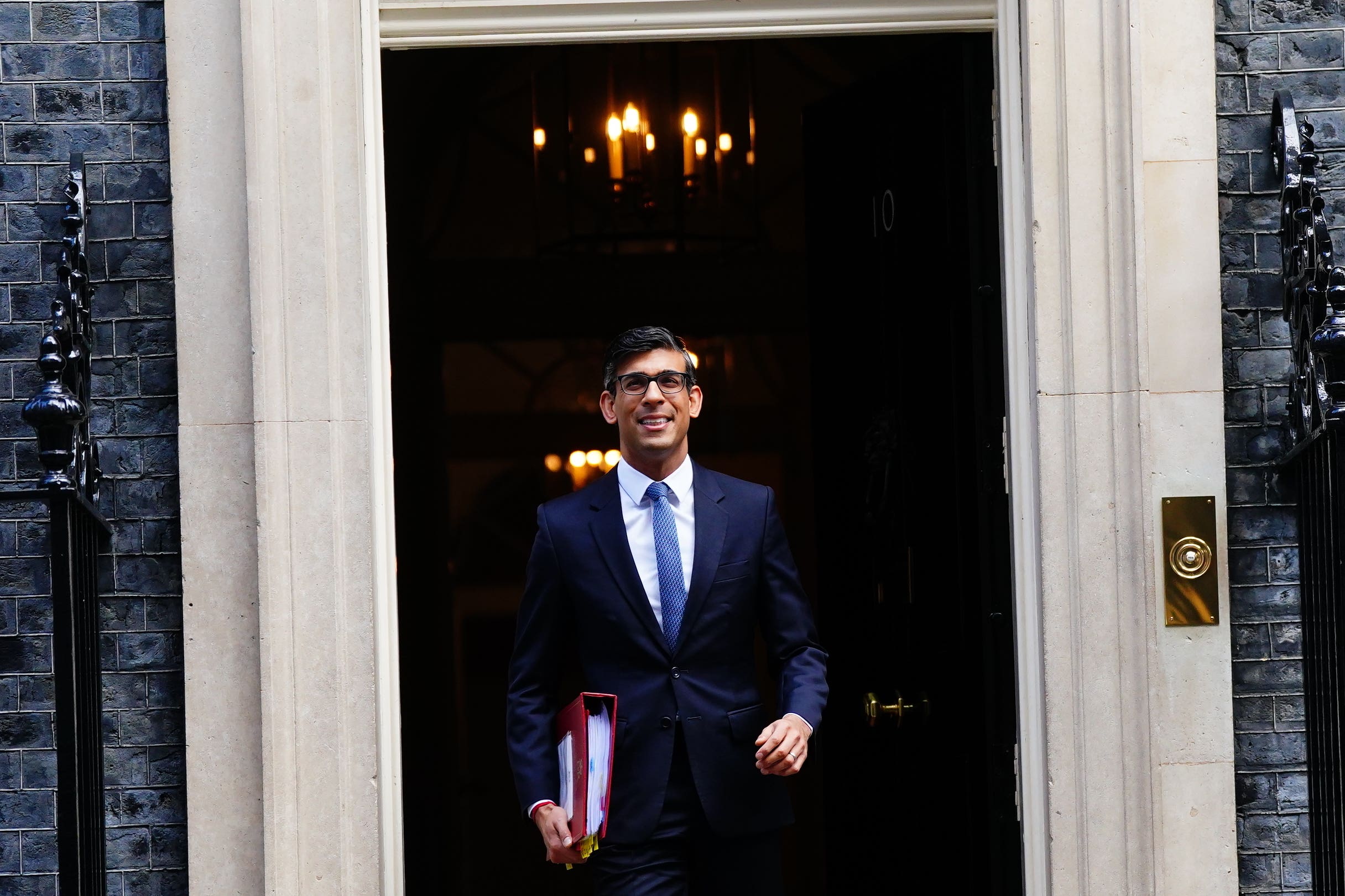Rishi Sunak must act to provide refuge for all Afghans who fought with our troops
Editorial: There is a problem with Rishi Sunak’s legislation, as he must know

The prime minister appeared conveniently vague about the case of the Afghan pilot who arrived in Britain on a small boat and who is now threatened with removal to Rwanda. When Caroline Nokes, the Conservative MP, raised The Independent’s reporting of the case with Rishi Sunak, he said he could not comment on an individual, but that he would “have a look”.
He may not have commented on an individual case, but he said a great deal in his evidence to MPs that applied directly to the person about whom we have reported. Speaking about Afghans who had served with British forces in their country, Mr Sunak said: “Those are exactly the people who we want to help.” He referred to the government’s schemes for bringing them to Britain “in a safe and legal way”, but carefully avoided the question of what to do with those who managed to get out of Afghanistan without British help and who made their way here by irregular routes.
He repeatedly emphasised that Britain welcomes genuine refugees and in particular those at risk from the Taliban because of their service with the British military: “That is the sort of country we are.”
Indeed, he made the case for his punitive measures against small boats by saying that the arrival of “tens of thousands of people” who are not entitled to our help was limiting our ability to look after those who are so entitled.
But there is a problem with Mr Sunak’s legislation, as he must know. The principle of providing refuge to those whom we want to help, such as our anonymous Afghan pilot, means that the government must allow exceptions to a blanket policy of criminalising all irregular arrivals. The pilot, who flew 30 combat missions against the Taliban and was praised by his coalition forces supervisor as a “patriot to his nation”, claims he has been “forgotten” by US and British forces.
It is no use pointing to the official schemes for accepting and resettling Afghans when the means of getting out of Afghanistan and into the scheme bureaucracy are so hazardous. There has to be some way of providing for those who manage to escape Afghanistan by their own resources.
In demanding that Mr Sunak look again at this issue, The Independent is joined by Admiral Lord West, the former head of the Royal Navy, who said the government has a “duty” to look after those who fought alongside Britain, and by Tobias Ellwood, the chair of the defence select committee. Mr Ellwood said the case shows there is “no functioning process” that allows Afghans to apply for asylum from abroad, and turned the prime minister’s words back on him: “This is clearly not who we are as a nation.”
Coincidentally, Mr Sunak’s appearance before the committee briefly overlapped with a statement in the Commons chamber by Johnny Mercer, the veterans minister, who set out plans to move about 8,000 Afghans out of hotels. These are Afghans who came to Britain under the official resettlement scheme, although they have not yet been permanently resettled. Mr Mercer promised “significant support” to find alternative accommodation, but local councils are warning that they need more funding.
In many ways, the British government’s acceptance of this nation’s responsibilities to those who served with our armed forces in Afghanistan has been commendable. But Mr Sunak and Mr Mercer need to ensure that they follow through on the promises of exactly what “sort of country we are”.
Join our commenting forum
Join thought-provoking conversations, follow other Independent readers and see their replies
Comments
Bookmark popover
Removed from bookmarks